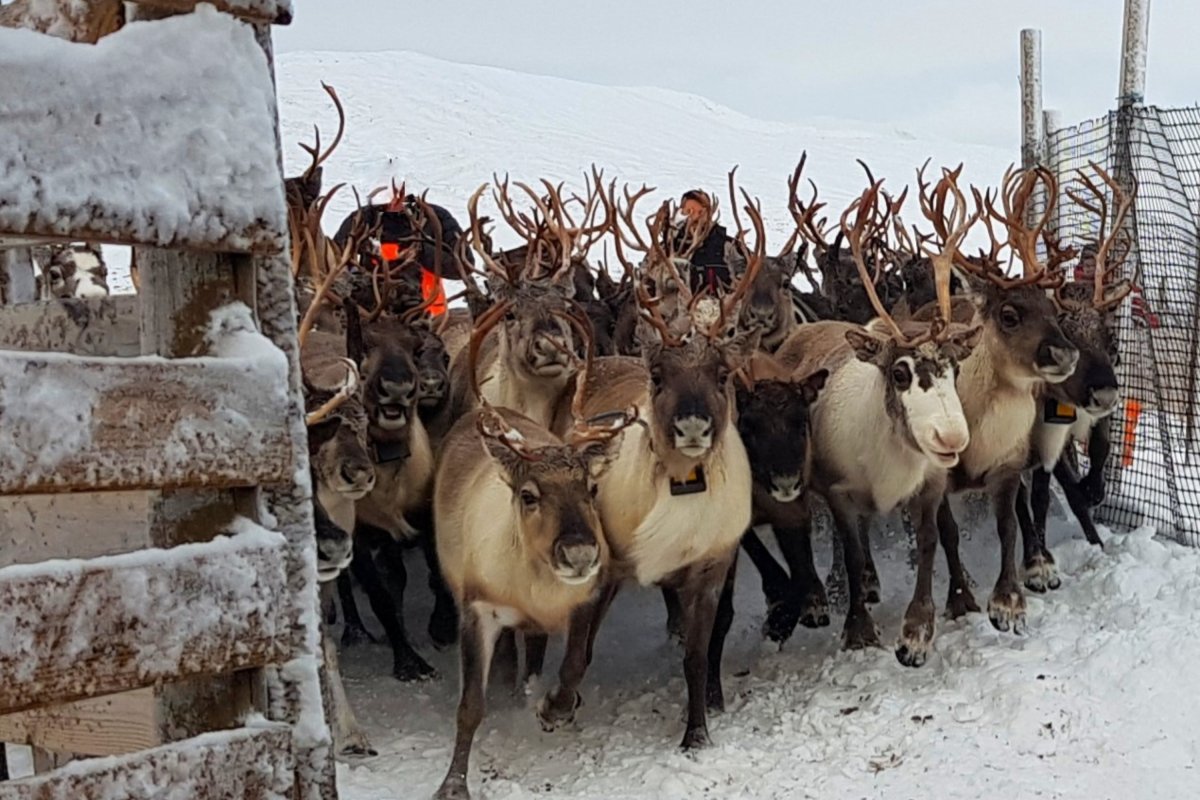As the saying goes, some people are bad at multitasking and “can’t even walk and chew gum at the same time.”
However, that’s not the case with reindeer, and a new study suggests that Rudolph and his ilk may be able to sleep and chew cud at the same time.
Precisely, researchers from Norway and Switzerland found that the brain waves seen by reindeer while they ruminate (rechewing partially digested food to help absorb more nutrients) are often similar to those seen during non-rapid eye movement sleep .
Non-rapid eye movement sleep is the stage of sleep that does not exhibit rapid eye movement (REM), during which the brain organizes memories, repairs damage, and wakes up feeling well-rested.
Gabriella Wagner
The team believes the reindeer may multitask in this way to get extra rest during the summer without having to sleep for longer periods of time.
This is crucial for the animals because they eat almost constantly at this time of year in preparation for the long, food-poor Arctic winter.
The study was conducted by neuroscientist Melanie Furrer of the University of Zurich and her colleagues.
“The more reindeer ruminate, the less extra non-rapid eye movement sleep they need,” Freire said in a statement. “We think their ability to save time and meet sleep and digestive needs at the same time is really important, especially in the summer.”
At this time of year, in the Arctic, the sun is always above the horizon. In contrast, during winter, the Arctic experiences permanent nights.
In fact, previous research has found that during these seasons, when there is no light-dark cycle, arctic-dwelling reindeer do not exhibit the common behavioral rhythm of being more active during the day, as they do at other times of the year.
However, it was previously unknown whether these seasonal differences also affect sleep duration and sleep quality in animals.
In the new study, the team measured brain activity in four Eurasian tundra reindeer on three occasions: the autumnal equinox, the summer solstice, and the winter solstice.
The animals were all adult females and were part of a captive colony maintained at the University of Tromso-Arctic University of Norway.
All experiments were conducted in indoor stables, where the reindeer had access to unlimited food and were maintained under controlled lighting and constant temperature.
Although reindeer are more active in the summer, researchers found that reindeer sleep for about the same amount of time in summer, fall and winter, meaning their sleep needs are tightly regulated by their brains rather than being influenced by their environment.
This is in contrast to other species that change their sleep duration depending on environmental conditions, explains paper author Gaby Wagner of the Norwegian Institute of Bioeconomics in Oslo.
According to a 2018 study, she told Weekly newspaper“Arabian oryx sleep almost twice as long in winter (6.7 hours) as in summer (3.8 hours).”
She added that other examples include fur seals, which suppress REM sleep when forced to sleep in the water; male pectoral sandpipers, which sleep only one hour a day during the breeding season; and the great frigatebirds, which sleep while flying , but counting down while in the air.
The team noted that regardless of season, reindeer spent an average of 5.4 hours per day in non-rapid eye movement sleep, 0.9 hours in REM sleep, and about 2.9 hours ruminating.
“The fact that reindeer sleep for the same amount of time in winter and summer means they have to use other strategies to cope with the limited sleep time in the Arctic summer,” Freire said.
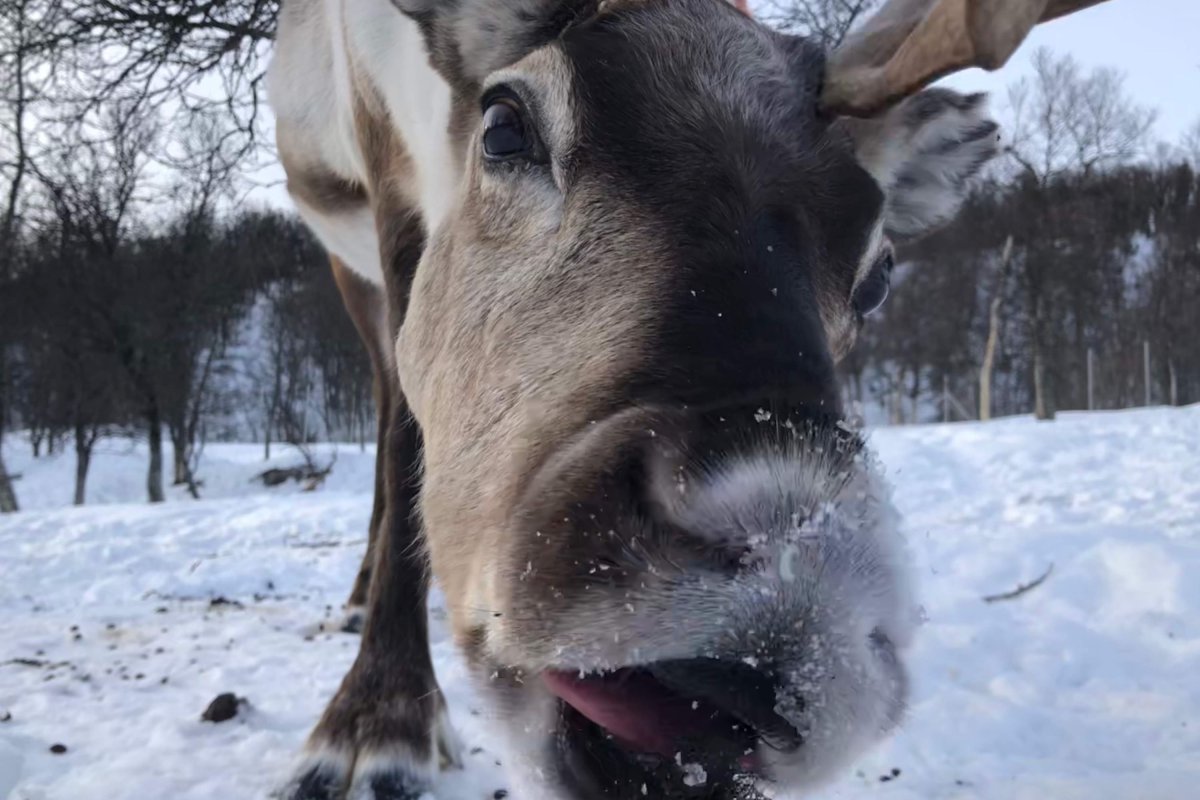
Leo Recia
The team found that while sleeping and deep in thought, reindeer showed similar behavioral patterns, tending to sit or stand quietly and reacting less to disturbances such as neighbors sitting or standing up.
In fact, animals responded to such stimuli only 25% of the time while ruminating, only 5% of the time while in non-rapid eye movement sleep, and 45% of the time when fully awake.
The animals also often close their eyes when contemplating, as they normally do when sleeping.
When ruminating, reindeer’s brain activity readouts were often found to be similar to those seen during non-rapid eye movement sleep, including increases in so-called slow-wave activity.
The researchers explain that this activity indicates the build-up of “sleep pressure,” an unconscious biological drive to get more, deeper sleep.
Wagner points out that it’s not entirely clear whether reindeer are fully asleep while meditating or simply in a sleep-like state, but based on their brain activity, the former seems likely.
She added: “This is also consistent with recent research in other ruminants such as sheep, which used a more invasive technique – electrodes embedded in the brain.”
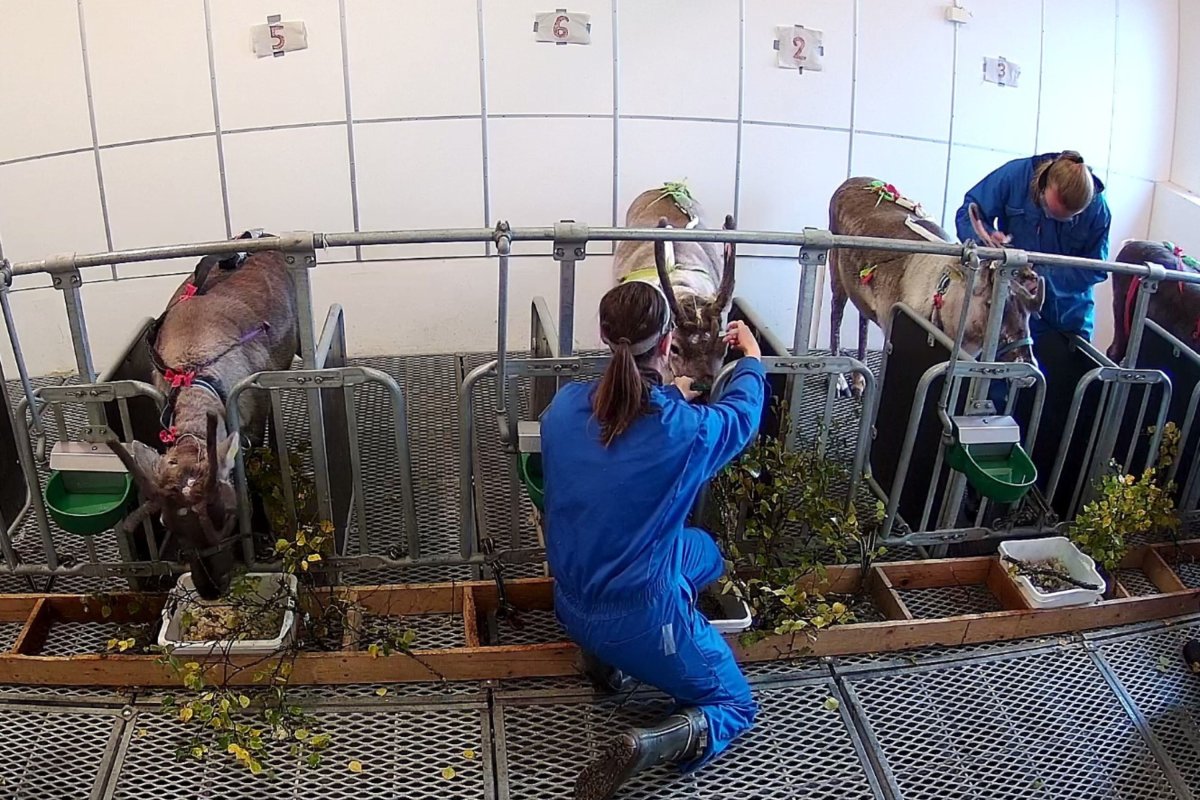
Current Biology Furrer et al.
Scientists have previously determined that other ruminants—domestic sheep, goats, cows, and young mousedeers—produce sleep-like brain waves while ruminating, but it was unclear whether this process also functions as a sleep-like function. Restorative effect. Function.
To explore this with reindeer, the team conducted experiments in which they deprived the animals of two hours of sleep through a combination of food and attention, and measured their brain waves while they slept before and after this disruption.
Brain scans showed that reindeer experienced more slow-wave activity after sleep deprivation, indicating increased sleep pressure and suggesting they were sleeping deeper.
However, the team found that the more reindeer ruminated after staying awake and before going to bed, the less slow-wave activity they had while sleeping.
“This suggests that rumination reduces sleep pressure, which may be beneficial to reindeer because it means they don’t have to compromise on sleep recovery when they spend more time ruminating,” Freire explains.
Reindeer may not sleep the entire time while ruminating, Wagner explained, because like us, they may need the right conditions to fall asleep, without noise, distraction or fear.
“It’s important for reindeer to have enough uninterrupted time to meditate,” she said.
Oleg Lyamin, a researcher at UCLA who was not involved in this study, studied the sleep of another ungulate, or “ungulate mammal,” the baby mole deer. Were studied.
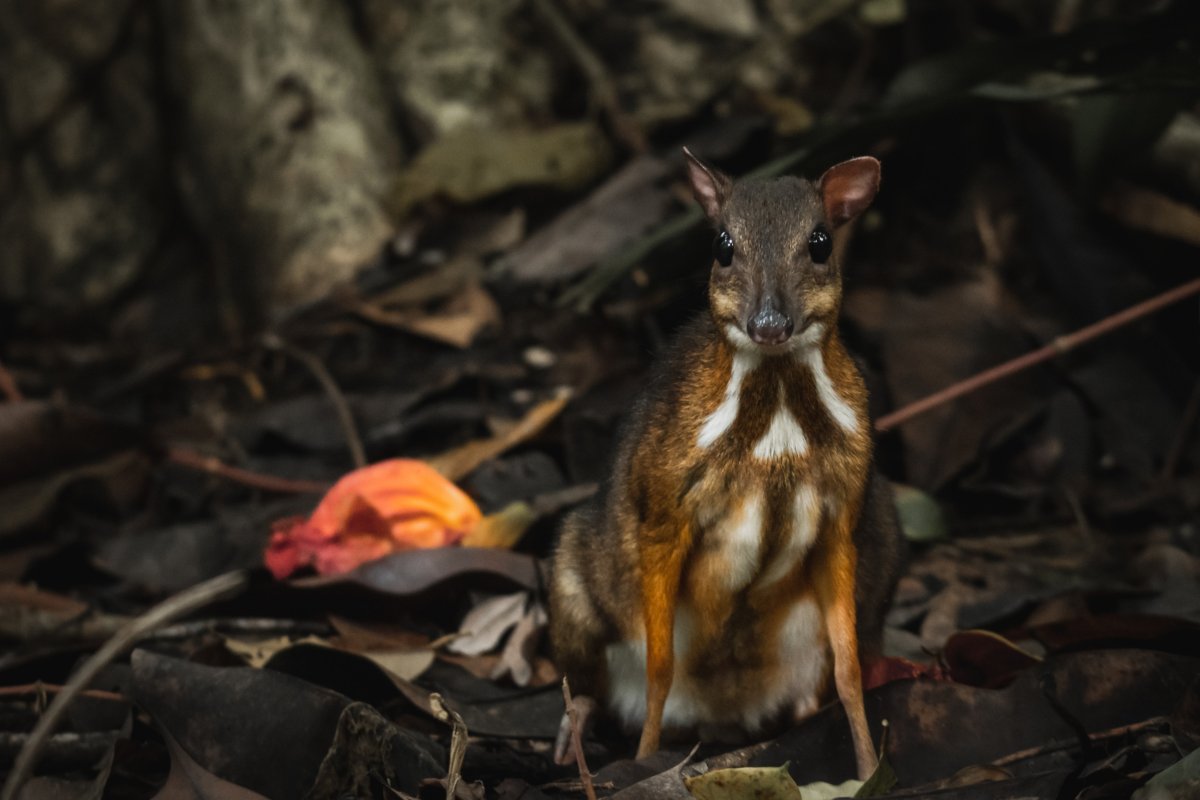
Wirestock/iStock/Getty Images Plus
“Rumination during non-rapid eye movement sleep has been documented in domesticated ungulates and young mousedeer,” he told us Weekly newspaper. “From where I stand, it’s not unusual for reindeer to experience rumination during non-rapid eye movement sleep.”
Professor Katie Proudfoot, an animal behavior expert at the Sir James Dunn Center for Animal Welfare in Charlottetown, Canada, said: “The link between sleep and sleepiness has been a big mystery to researchers.” Weekly newspaper.
The problem, she explains, is that “the process of rumination—chewing, swallowing, regurgitating, and rechewing food—can interfere with our ability to measure sleep using electrophysiology.”
Fuller and her colleagues cleverly overcame this problem by filtering the data and testing arousal levels during contemplation, concluding that reindeer may be Sleep during meditation. Weekly newspaper.
She added: “This is a solid piece of the puzzle in ruminant sleep research – the next step will be to quantify ruminant sleep during rumination.”
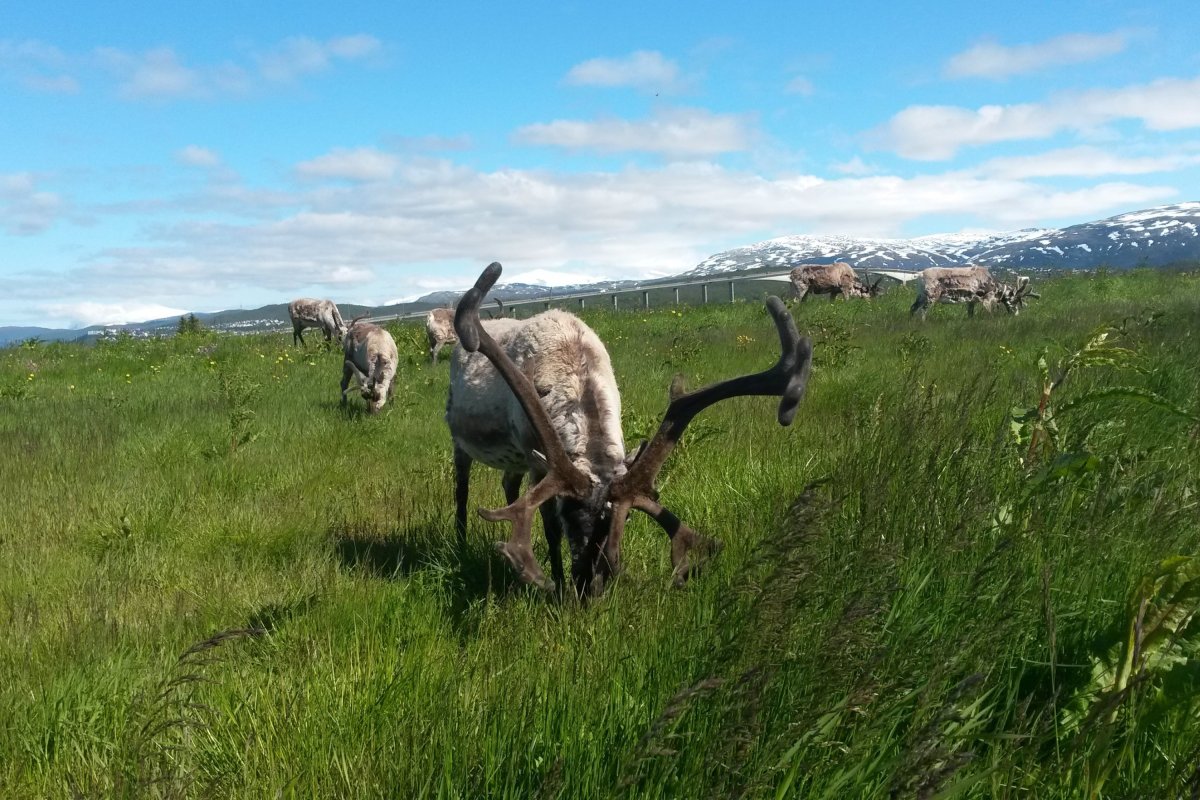
Gabriella Wagner
The team says that because reindeer appear to enter a sleep-like state only when ruminating at certain times, future studies should also compare the effects of different rumination behaviors.
Ideally, reindeer should be studied in more natural outdoor conditions, they added.
However, this would likely require surgical implantation of brain activity sensors rather than the non-invasive, skin-attached electrodes used in this study.
“We know that toddlers and infants have much higher sleep needs than adults,” Freire said. “So it would be interesting to observe the sleep of young reindeer.”

Frank Meissner
“We think this study may lead to more research examining sleep during rumination in reindeer and other ruminants,” Wagner said. “Additionally, this shows how important it is for reindeer to have enough time for undisturbed contemplation, as this is important for reindeer to Digestion and sleep needs are both important.
“We therefore hope that future research and political decisions regarding human activities in reindeer/reindeer ranges will take into account that reindeer have sufficient time and space to rest undisturbed.”
“Understanding sleep in a variety of wild and domestic species can give us insights into how sleep evolved and help us better meet the needs of these animals in our care,” Proudfoot concluded.
The full results of the study are published in the journal modern biology.
uncommon knowledge
Newsweek is committed to challenging conventional wisdom and finding connections in the search for common ground.
Newsweek is committed to challenging conventional wisdom and finding connections in the search for common ground.
#Study #finds #Rudolph #reindeer #gifted #multiple #tasks
Image Source : www.newsweek.com
